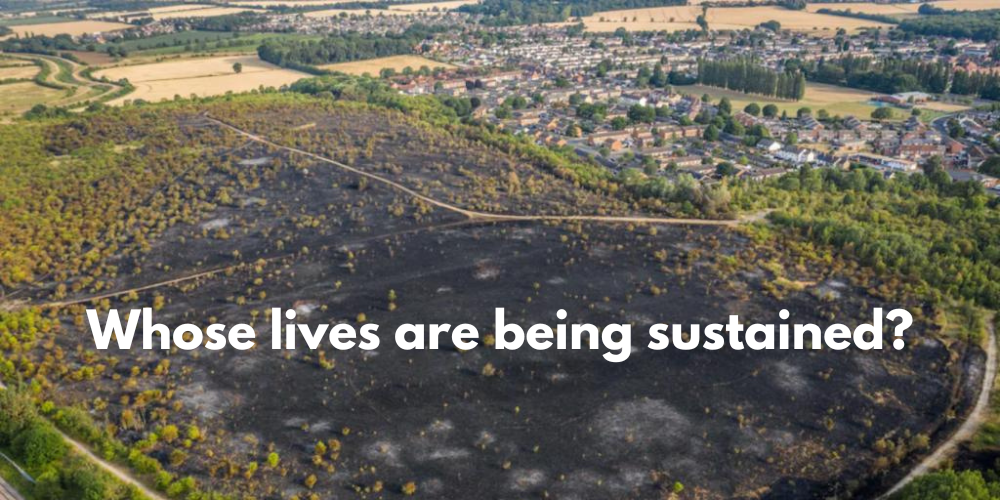(Un)sustainable Lives
The IGDC Working Paper ‘(Un)sustainable lives’ explores the politics behind the decisions that ultimately render certain communities and nations worthy of sustaining and those that are not, who pay the ultimate price for climate change.

Looking at the current impact of climate change and the resources committed to those suffering from the consequences, reveals that the lives of those who tend to live most sustainably are often left unsustained, while there is continued investment in the sustenance of lives, which are most unsustainable.
Sustainability politics is informed by assumptions and judgements about whose lives are worth sustaining.
In the paper, based on her Keynote Address at the ‘Challenges for Sustainability Research’ Conference, Dr de Jong illustrates her argument with the case of Pakistan and the disproportionately high price they pay in terms of temperature rise as demonstrated by events such as the 2022 floods. The floods left over 1000 dead, homes destroyed, and agriculture and infrastructure decimated. Pakistan, on the other side of the climate crisis, contributes less than 0.8 percent to global greenhouse gas emissions.
“The same lives that could be considered sustainable from an environmental point of view, are apparently deemed unsustainable politically, in terms of the collective will to commit resources and drastically change ways of living, production and consumption to save them.” Dr Sara de Jong
Inspired by Judith Butler’s reflections on un/grievable lives, the paper unpacks whose lives are considered sustainable and whose lives unsustainable. Why do the large number of victims in certain events fail to register in the global political arena and international media? Certain lives seem to be highly protected and mobilise significant resources to ensure their survival in the face of climate change, while others do not even qualify as grievable when their sustenance has failed.
The paper expands on this with the case of Doncaster in the UK which faces climate change related challenges such as wildfires and declared a climate and biodiversity emergency in 2019. This economically poorer area found itself sidelined and ignored, at the margins of media and political attention even within the UK.
The inequality of marginalised populations facing exclusion from social opportunities needs to be rectified. Unequal economic distribution, with those at the top not only hoarding wealth, but also power, demands a radical rethinking of the economic model that underpins this vertical inequality.
Dr de Jong concludes: “Attention to the relationship between un/sustainable and un/sustained lives makes visible the contradictions of hegemonic sustainability politics in general and the ‘no one left behind’ goal in particular. It raises the question of what ‘no one left behind’ means when some people or communities are not counted as ‘one’ in the first place, but simply remain ‘no one’.”
Read ‘(Un)sustainable lives’ IGDC Working Paper in Full
IGDC Working Papers
‘(Un)sustainable lives’ is one from a range of IGDC working papers and briefings collectively covering a wide range of subject matter, other titles in the series include:
Contact us
Interdisciplinary Global Development Centre
igdc@york.ac.uk
01904 323716
Department of Politics and International Relations, University of York, Heslington, York, YO10 5DD, UK
Twitter
Contact us
Interdisciplinary Global Development Centre
igdc@york.ac.uk
01904 323716
Department of Politics and International Relations, University of York, Heslington, York, YO10 5DD, UK
Twitter